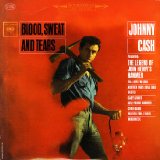
1963
Johnny Cash: Blood, Sweat and Tears (Columbia)
Some of Cash's '60s concept albums were burdened with much too talking between tracks; here the tribute to the American working man gets to mostly stand alone on its musical merits, and shines. Notably, it incluces the top version of the traditional "John Henry"” about the most legendarily heroic working man ever, and the version of "Casey Jones" here is classic as well. Politically and psychologically, Cash was the perfect man for this job.
1968
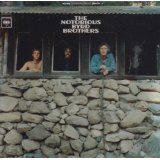 Byrds: Notorious Byrd Brothers (Columbia)
Byrds: Notorious Byrd Brothers (Columbia)
Sometimes transitional albums, confusing listeners expecting a group's earlier style, are underrated. Not so with this classic. It's true that it didn't sell as well as earlier Byrds LPs, nor did the single from the album chart very high, but for decades Notorious Byrd Brothers has been widely revered, and not just by fans; some critics have even anointed it as the band's best album. This despite the incredible group turmoil during its creation, which saw the firing of founding members David Crosby and Michael Clarke by Roger McGuinn and Chris Hillman, the brief return of ex-member Gene Clark, and the use of a vast array of sidemen, including Clarence White, later a full-fledged band member. Impressively, the album coheres stylistically even though bringing together wildly disparate influences ranging from psychedelic audio collage and synthesizers to country music.
While the Byrds had played country-tinged songs before, this was the first time that pedal steel guitar was heard on a Byrds LP -- and it was heard often and prominently, played by country legend Red Rhodes. The eventual addition of guitar whiz White added country flavor as well. It was also the first Byrds album with Moog synthesizer, and featured a lot of psychedelic effects (phasing, flanging, panning). Country and psych sometimes co-exist, as on the mostly Hillman-penned song "Old John Robertson." The result was an especially rich sonic tapestry and -- though lacking big hits -- a collection of superb songs, not least because of three that Crosby left on his departure.
Merle Haggard: Sing Me Back Home (the title track is one of Haggard’s best sentimental songs, and was covered by the Byrds and the Grateful Dead)
Dr. John: Gris-Gris (famed New Orleans pianist/guitarist Mac Rebennack's first album as his character Dr. John the Night Tripper -- who was supposed to be Ronnie Barron, who turned down the gig -- is a classic hybrid of New Orleans R&B and psychedelia)
Canned Heat: Boogie with Canned Heat (speaking of Dr. John, he contributes piano and horn arrangements; the hit is"On the Road Again" featuring Alan Wilson’s haunting vocal)
Spirit: Spirit (the band's debut LP is such a guitar classic that even Led Zeppelin's Jimmy Page was influenced by it -- meaning, he appropriated some of its riffs)
Velvet Underground: White Light/White Heat (the best and most influential of VU's LPs was the last before co-founder John Cale went solo; without the example of its guitar sound -- especially as heard on the monumental "Sister Ray" -- Joy Division would have been impossible)
Bee Gees: Horizontal (their fourth album, though only their second international release, features "Massachusetts")
Aretha Franklin: Lady Soul (one of Aretha's best albums; "Niki Hoeky" was a bad choice, but otherwise it's a juggernaut of great soul tracks, including some intense covers)
1973
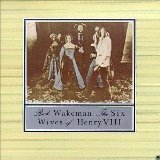 Rick Wakeman: The Six Wives of Henry VIII (A&M)
Rick Wakeman: The Six Wives of Henry VIII (A&M)
Wakeman's label thought it was going to be lucky to break even on an album of keyboard-heavy prog-rock instrumentals, and only pressed 12,500 LPs. Ha! Had it been any other era, A&M probably would have been right, but in 1973, people were more open-minded and had longer attention spans -- and dug cape-wearing long-haired guys who played in Yes (fellow Yes-men Steve Howe, Chris Squire, Bill Bruford, and Alan White are heard here, along with plenty of other sidemen and a small choir that has two brief, wordless cameos). Wakeman is heard on ten keyboards, including a church pipe organ. His ornate style is not all high-falutin' pomp; there's a hoedown section that features his ex-Strawbs bandmate Dave Cousins on electric banjo. The results are surprisingly unpretentious, relatively speaking, and sometimes downright tuneful)
Bruce Springsteen: Greetings from Asbury Park, NJ (as debut albums go, pretty darn great)
Yoko Ono: Approximately Infinite Universe (Yoko goes rock on this double LP, but still is far from the mainstream and lyrically disturbing)
Aerosmith: Aerosmith (I don't care what anyone says, it was all downhill from here and the glory of the utterly atypical, for them, pomp of “Dream On”)
Elton John: Don't Shoot Me I'm Only the Piano Player (his second consecutive #1 album on the strength of the retro "Crocodile Rock" and the profound ballad "Daniel")
Paul Butterfield's Better Days: Better Days (the first LP by the all-star band Butterfield formed with Geoff Muldaur, Amos Lee, Ronnie Barron, Billy Rich, and Chris Parker after moving to Woodstock)
Gram Parsons: GP (his first solo album, and the beginning of his collaboration with Emmylou Harris, is a country-rock classic)
Bob Seger: Back in '72 (Seger refuses to sanction a legit reissue on CD because he says he doesn't like his vocals, which is a shame because this is a legitimately great album that features not only the original studio version of "Turn the Page" but also some excellent covers)
1978
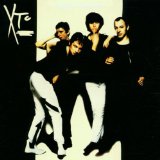 XTC: White Music (Virgin)
XTC: White Music (Virgin)
On the band’s debut, its early quartet lineup, before the departure of keyboardist Barry Andrews, races through catchy yet punky tunes with a delightful quirkiness. Nor, unlike some punks (because these guys had been paying dues long before punk existed), were they ashamed of their love of pop -- heck, not only did they include a track entitled "This Is Pop," they released it as a single. More energetic and dissonant than the smoother sounds of their later albums, this is a masterpiece of wordplay and spiky tunefulness, and also includes probably the strangest cover of Dylan's A"ll Along the Watchtower" you’ll ever hear.
Warren Zevon: Excitable Boy (this album's "Werewolves of London" made him a star, but every track is a winner)
Gerry Rafferty: City to City (his first release since leaving Stealer's Wheel was a massive hit on the basis of "Right Down the Line," "Home and Dry" and, most of all, the sax-infused "Baker Street" -- which, amazingly, he had to fight with the label to get released as the first single from the LP)
Journey: Infinity (first album with vocalist Steve Perry features "Wheel in the Sky")
Bootsy's Rubber Band: Bootsy? Player of the Year ("Bootzilla" not only topped the charts, it introduced a new persona for the hard-funking superstar bassist)
Muddy Waters: I'm Ready (his second Johnny Winter-produced LP won him a Grammy; don’t think it's not great because it's not on Chess, because aside from Winter all the players are blues lifers -- about half of them Chicago veterans with whom Muddy had long history)
Sweet: Level Headed (in my youth, I was enraptured by the instrumental section of "Love Is Like Oxygen," which in its shortened version – bereft of that section – was their last Top Ten hit; this was the group’s last good album, because after this leader Brian Connelly left)
George Benson: Weekend in L.A. (two-LP concert album magically spawned a hit single with his rendition of “On Broadway”)
1983
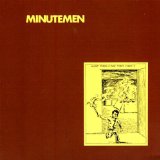 Minutemen: What Makes a Man Start Fires? (SST)
Minutemen: What Makes a Man Start Fires? (SST)
My favorite rock band's second album was, by its previous standards, an epic production. Not only did it take three days to make, complete with the first contributions from a non-member, Saccharine Trust guitarist Joe Baiza, its 18 songs totaled a whopping 26 minutes and 39 second, positively monumental compared to their first LP's 15 minutes (also for 18 tracks). Three tracks even topped the two-minute mark, which hadn't happened at all on the debut. Then again, this was never a normal hardcore band. The first LP, The Punch Line, hadn't particularly toed the hardcore line, but its unrelenting energy and brevity had somewhat obscured its unorthodoxy. On What Makes a Man Start Fires?, however, the stylistic deviations became clearer. Oh, the opening track, "Bob Dylan Wrote Propaganda Songs" (which leader/vocalist/guitarist D. Boon said admiringly), was still in the "faster and louder" school of playing, as were many other tracks. But when the tempos were slowed, occasionally the rhythms bassist Mike Watt and drummer George Hurley played were revealed to be funk-flavored; even Boon's feverish guitar strumming showed some syncopations. I don't know whether they got the funk from the Ohio Players or Gang of Four or Blood Ulmer (maybe all three), but what they did with it was unique at the time, although soon influential on bands including JFA and Tar Babies. Jazz, avant-garde or otherwise, peeked out occasionally as well. Nonetheless, the variety didn't come at the cost of a less coherent style; its clangorous glee and unrelenting intensity saw to that. Also revealed by the slightly slower speeds: some songs had actual melodies at times. The Minutemen would soon achieve even greater heights, but if this had been their last recording, they would still be revered.
Bryan Adams: Cuts Like a Knife (the title track was in heavy rotation in the early days of MTV; it starred model Raquel Pena, and I practically memorized)
Def Leppard: Pyromania (a metal album hitting #2 on the LP chart was still a surprise in '83)
Eurythmics: Sweet Dreams (Are Made of This) (synth pop acquires a little soul)
Merle Haggard & Willie Nelson: Pancho & Lefty (Townes Van Zandt wrote the title track a decade earlier, but it was this all-star duo that took it to #1 on the Country Singles chart -- and this LP hit #1 on the Country Album chart as well)
Randy Newman: Trouble in Paradise (Newman’s most modern production, awash in synthesizers, features the satirical "I Love L.A.")
Nena: Nena (German New Wave that surprised with an international hit single, "99 Luftballons," about nuclear apocalypse)
1988
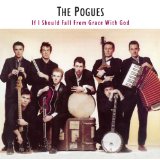 The Pogues: If I Should Fall from Grace with God (Warner Elektra Atlantic)
The Pogues: If I Should Fall from Grace with God (Warner Elektra Atlantic)
As if their combination of Irish folk and punk wasn’t great enough already on 1985's superb Rum, Sodomy and the Lash, by '88 frontman Shane MacGowan had matured (if that's a word that can really be used in reference to him) into one of the finest songwriters in the British Isles, penning songs in an absolutely realistic voice but with a literary sense for the telling detail. The band’s balance between punk and Irish folk was never more even than here, either. An undisputed classic.
Lyle Lovett: Pontiac (the matter-of-factly delivered yet nearly surreal "If I Had a Boat" is my fave Lyle song)
Megadeth: So Far, So Good…So What! (yeah, Dave Mustaine has turned into a cranky old conservative, but once upon a time he was a metal god)
1993
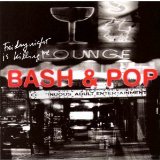 Bash & Pop: Friday Night is Killing Me (Sire/Reprise)
Bash & Pop: Friday Night is Killing Me (Sire/Reprise)
Tommy Stinson made his name as the illegally young bassist of the Replacements, one of the hardest-partying bands of the '80s (older brother Bob eventually drank and doped himself to death). Tommy formed his band Bash & Pop after the Mats broke up, and proved to have a knack for catchy power pop. I think it’s better than almost half of the Replacements' albums, actually.
Elvis Costello & The Brodsky Quartet: The Juliet Letters (Elvis's pretensions at their most annoying)
1998
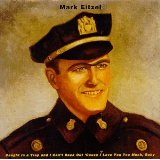 Mark Eitzel: Caught in a Trap and I Can't Back Out 'Cause I Love You Too Much, Baby (Matador)
Mark Eitzel: Caught in a Trap and I Can't Back Out 'Cause I Love You Too Much, Baby (Matador)
First of all, the Presley-referencing title is awesome. Most of this album is in a stripped-down and often acoustic style, emphasizing his ace songwriting and wry wit over instrumental atmosphere. However, Eitzel rocks out on a few tracks with Yo La Tengo bassist James McNew and Sonic Youth drummer Steve Shelley, and Kid Congo Powers (Gun Club, Cramps, Nick Cave & the Bad Seeds) shows up to add some guitar. Even without them, the tracks are not generally in the ruminative style of his later albums. Eitzel has never made a bad album, but this is one of his best. Too bad Matador hasn't seen fit to keep it in print.
Air: Moon Safari (a mellow classic of loungey electropop)
2003
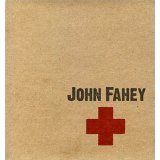 John Fahey: Red Cross (Revenant)
John Fahey: Red Cross (Revenant)
With just a guitar and lotsa reverb (and, on one track, two other guys adding organ, chimes, and bass guitar), Fahey made a far better album while teetering on the edge of death than most stars with unlimited resources can make in the primes of their lives. This is that album. The guitar virtuosity and profound blues knowledge of Fahey's early years occasionally pop out from its textures, but he had transcended such things and seemed intent on some metaphysical search for psychologically significant sounds and combinations of sounds, a sort of fat, white, geriatric Coltrane of the guitar who was playing purely to satisfy himself, disregarding any other audience, in spite of which this is a timeless, emotionally evocative album, infinitely rewarding to aesthetically attentive listening. In a way, the ranking of this album is an averaging of goal and accomplishment; I sense that what Fahey was chasing is unobtainable on the physical plain, and having to utilize mere instruments and fingers marred the result. But this is as close a listen to a Zen-like ineffable music (a la solo shakuhachi music) as I've heard any Westerner attempt with any degree of success, because even though Fahey's accomplishment falls short of the ultimate goal, through a kind of satori he manages to allow us to sort of hear that goal, to hear the ineffable.
Bonny “Prince” Billy: Master and Everyone (don't let the hipster facial hair fool you, this guy's a helluva songwriter)
Antipop Consortium: Antipop vs. Matthew Shipp (electronica meets avant-garde jazz; jazz wins but gets interestingly mutated along the way)
2008
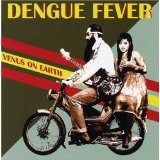 Dengue Fever: Venus on Earth (M80)
Dengue Fever: Venus on Earth (M80)
Everybody's favorite L.A.-based purveyors of Cambodian psychedelia spiced with '70s Ethiopian flavors were on their third album at this point, but continued to tweak its style and acquire more polish. By this point, even if you weren't a fan of their earlier influences, you could still dig them, because they'd also included soul in the mix, and were writing more songs in English. And vocalist Chhom Nimol, well, she’s the real thing, an émigré from Cambodia, but also a spectacular singer regardless of context. Great fun, but also great music that’s more than a curiosity.
Drive-By Truckers: Brighter Than Creation's Dark (with Patterson Hood roughly wailing a harrowing tale from the Iraq War, "That Man I Shot" is perhaps their greatest track ever, complete with scorching guitar solos)
The Magnetic Fields: Distortion (only for Stephin Merritt would using guitar be a concept-album move all by itself)
MGMT: Oracular Spectacular and Vampire Weekend: Vampire Weekend (in the year of the buzz bands, these two ruled the blogs)
Sorry, folks, this is the last Five-Year Plan feature I'll be able to do. The amount of work involved is too much to handle. But I enjoyed putting together the ones I did.
